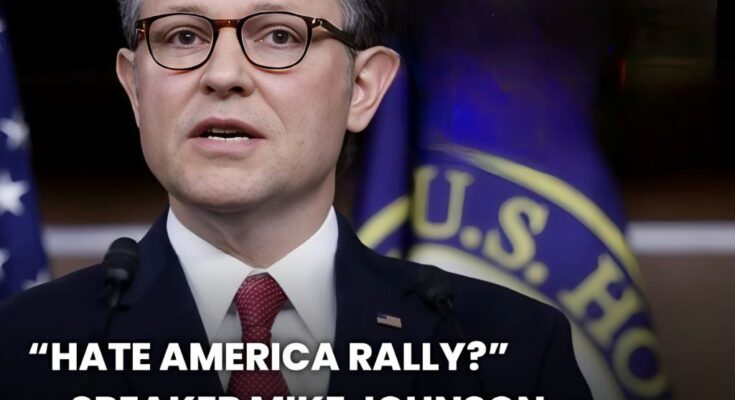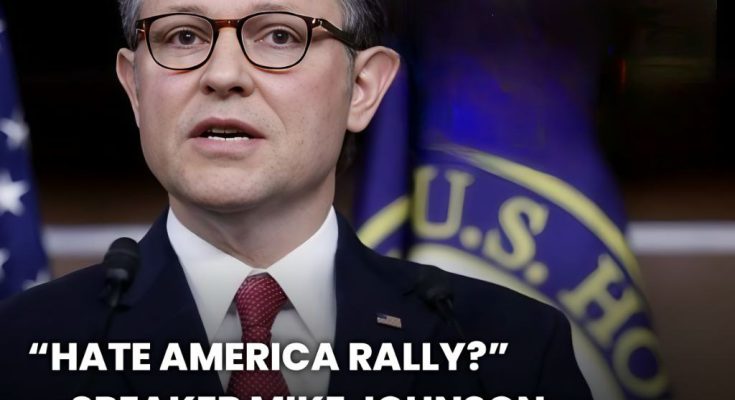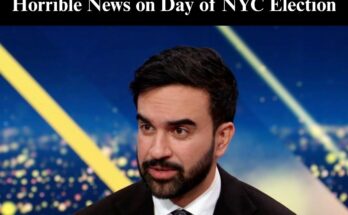As “No Kings” Takes the Streets, Speaker Johnson’s Fury Rises — Is This the Loudest Fight for America Yet?
House Speaker Mike Johnson unleashed a blistering assault this week on the scheduled October 18 “No Kings” rallies, branding them a “hate America rally” and claiming they are funded by George Soros and co-sponsored by the Communist Party USA. His rhetoric escalated tensions heading into what organizers are marketing as a massive, peaceful expression of democratic defiance. The spotlight now falls on whether Johnson’s denunciations will sharpen partisan lines — or backfire — as millions are expected at thousands of protest sites nationwide.
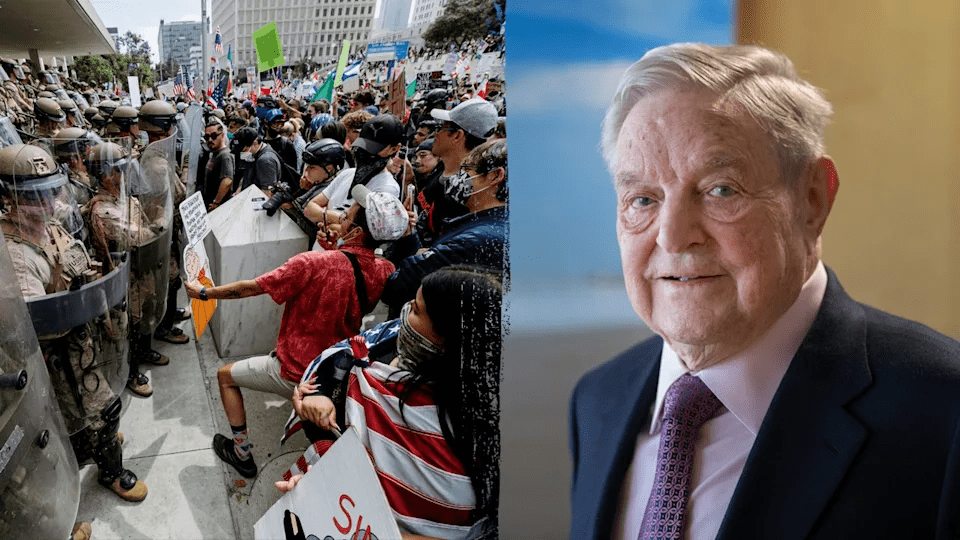
Johnson’s aggressive language marked a departure from standard congressional sparring. On Fox News and in official statements, he asserted that “No Kings” is being held with indirect support from left-wing money, pointing to a reported $3 million grant from the Open Society Foundations to Indivisible, a major organizing group. He accused the organizers of aligning with anti-American forces, even alleging pro-Hamas and antifa ties. While Johnson’s claims are rooted in real connections — the Soros family foundation has indeed funded Indivisible in previous years — organizers and allies have sharply rejected his framing as misdirection and fearmongering.
For the organizers, the October event is billed as a sequel to the June “No Kings” day, which drew millions of protesters across more than 2,100 towns and cities in what became one of the largest single-day demonstrations in modern U.S. history. This time, over 2,500 sites across all 50 states are scheduled, with rallies planned in major urban centers such as Washington, D.C., New York, Chicago, Los Angeles and hundreds of mid-sized towns. The goal, organizers say, is to stand up against what they see as creeping authoritarianism, aggressive federal overreach, threats to civil liberties, and the undermining of democratic norms.
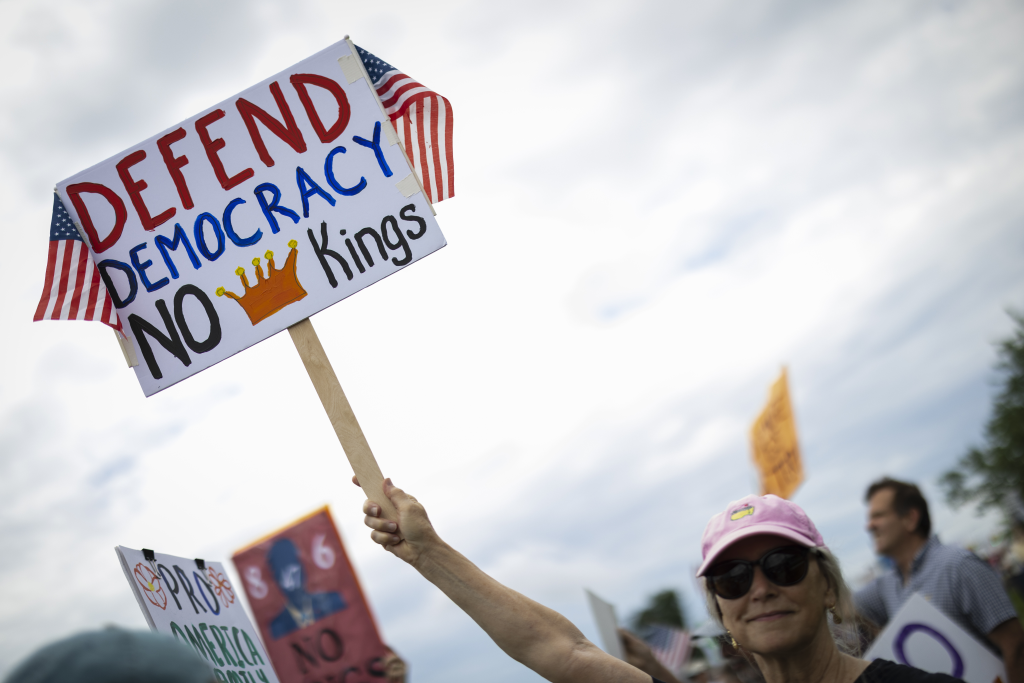
Johnson, however, insists the protest is politically engineered rather than organic. He tied it to the ongoing government shutdown, suggesting Democrats are delaying reopening the government until after the rallies to appease a radical base. The speaker’s message suggests that what organizers call constitutional resistance is, in Johnson’s view, a destabilizing force undermining national unity.
The clash is emblematic of a broader war of narratives. Johnson’s base, watching the protests take off, cheered his bold labeling. In conservative media, some echoed his claim that the rally is anti-American, while others criticized it as a desperate attempt to distort the meaning of dissent. On the other side, liberal commentators and civil rights groups have condemned the attack on free speech, warning that branding peaceful protest as sedition is a dangerous precedent in democracies.
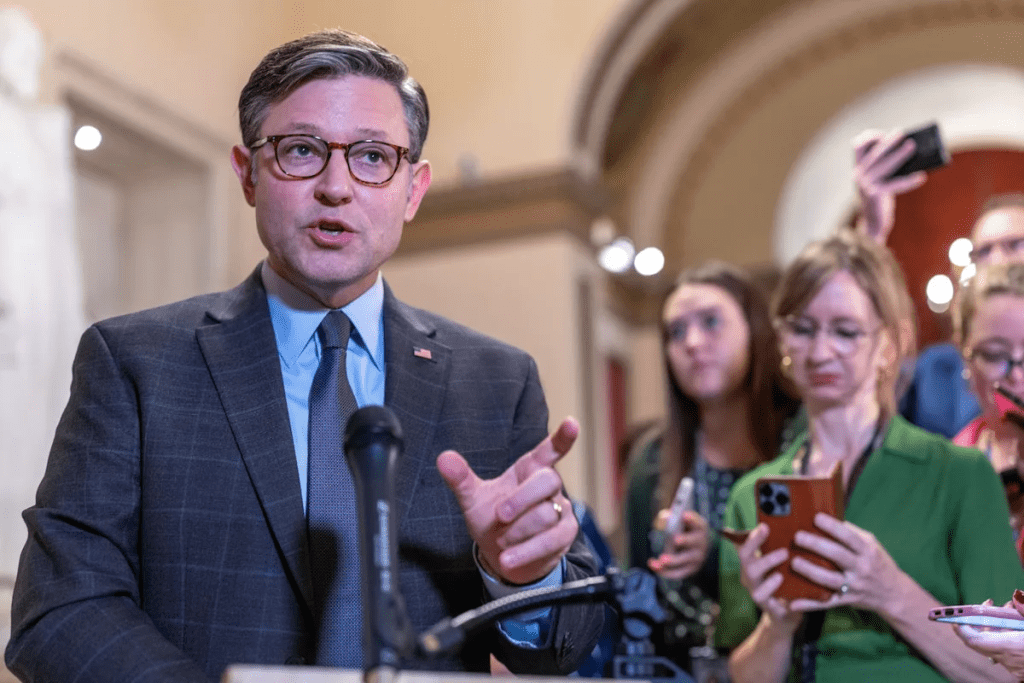
Part of Johnson’s strategy rests on emphasizing the associations and funding routes. He has repeatedly cited the Soros-Open Society connection, framing it as emblematic of behind-the-scenes manipulation. That narrative resonates in some Republican circles, where any Soros involvement is immediately cast as proof of radical orchestration. Yet critics argue that while funding is real, its use does not inexorably define the ideology or character of a movement. To many observers, labeling the entire movement “Soros-funded” is a rhetorical overreach.
As D-Day for the protests nears, security measures are intensifying. Governors in states including Texas have mobilized National Guard and law enforcement to manage crowds and prevent violence. Public safety officials and protest organizers alike are urging de-escalation, encouraging demonstrators to remain peaceful and avoid provocateurs.
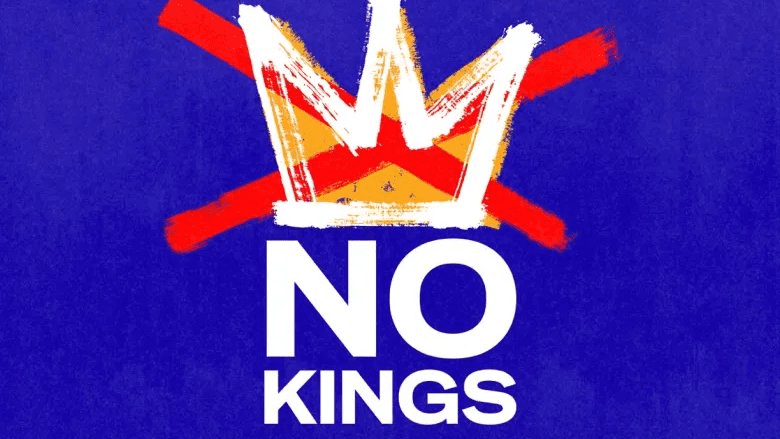
In the weeks ahead, the country will watch not just for crowd size but for tone and outcome. Will Johnson’s fierce denunciations galvanize conservative voters? Will the “hate America” tagging sink into public consciousness or bounce off it? And will the protests succeed in shifting the national conversation — or will they be overwhelmed by the noise of partisan infighting?
For millions who plan to join the rallies, the stakes feel existential. This is not just a protest but a turning point — a moment to test whether dissent is to be feared or embraced, whether democracy can survive in shadow of condemnation, and whether the narrative of a “hate America rally” will hold or fracture under history’s judgment.
